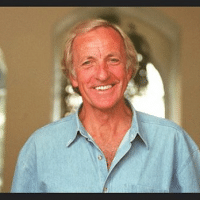-
A critical look at China’s One Belt, One Road initiative
China’s growth rate remains impressive, even if on the decline. The country’s continuing economic gains owe much to the Chinese state’s (1) still considerable ability to direct the activity of critical economic enterprises and sectors such as finance, (2) commitment to policies of economic expansion, and (3) flexibility in economic strategy.
-
Market meltdown
Grace Blakeley dissects the failure of finance capital and calls for radical measures to take it back under democratic control.
-
Global de-dollarization spells jolts and crises for U.S. economy
The Trump administration’s bellicosity has combined with the volatility of the global economy to sharply accelerate what has become an international movement: ditching the dollar as the world’s reserve currency.
-
A self-enriching pact: imperialism and the Global South
Does the concept of imperialism explain major characteristics of the capitalist world in the 21st century?
-
The Indian economy in a tailspin
THE Indian economy is in a tailspin. This cannot be attributed only to innocence in economic matters of the command-centre of the NDA government. While that is indubitably a contributing factor, the current travails of the economy point to something deeper, namely the dead-end to which neo-liberalism has brought the economy.
-
In and against the state
Labour needs to develop a socialist strategy that goes beyond a single election manifesto. Leo Panitch and Sam Gindin look at the challenge of state transformation.
-
The Battle for Paradise
Naomi Klein gives a stirring account of the struggle against disaster capitalism in Puerto Rico after 2017’s Hurricane Maria, finds Ellen Graubart.
-
A manifesto for socialist development in the 21st century (Part 2)
What might socialist development look like? Mainstream conceptions of development deem capital accumulation the bedrock upon which to achieve human development. In these conceptions of change, labouring classes are regarded as fuel for the development motor, which in turn justifies their exploitation and oppression. In contrast, how would a non-exploitative socialist development strategy be operationalised? This article advances a 10-point plan for sustainable socialist transformation.
-
Theoretical contributions of Samir Amin (1931-2018)
The Egyptian-born social scientist and activist Samir Amin wrote extensively on political economy and the challenges for the peripheral capitalist states. He died in a Paris, France hospital on 12 August 2018 at the age of 86.
-
Brazil faces ‘threat of contemporary dictatorship,’ Workers’ Party candidate says
Haddad spoke with journalists about the aggressive remarks made by far-right candidate Jair Bolsonaro.
-
Colombia’s peace crumbles as social leaders killed with impunity
“In a country subsumed in terror and violence, it is easier to subdue the population and enslave them to work in favor of big capital.” (Camilo Bonilla, 2018)
-
Donald Trump at the UN: a speech full of attacks on Iran, Venezuela, and its Cuban allies
“All nations of the world should resist socialism and the misery that it brings to everyone,” the U.S. President stated, in what was a cynical and absurd speech, with all the rhetoric of the Cold War.
-
Introduction to the analysis of the Draft Constitution of the Republic during the popular consultation
The draft Constitution of the Republic approved by the National Assembly of People’s Power in its ordinary session on July 21 and 22, 2018, and which is now being submitted for consultation to our people, is the result of in-depth work begun in 2013.
-
Pan-Africanism conference charts course towards a socialist continent
The hundreds of delegates who met in Ghana held discussions on five major themes that are of prime importance in the struggle against capitalism and imperialism.
-
Business ethics, with Karl Marx
Business ethics, with Karl Marx
-
Trump backs military coup in Venezuela against Maduro
Speaking on the sidelines of the UNGA meeting, an organization meant to promote peace, the U.S. president confirmed his backing for violent military takeovers and interventions.
-
Facebook’s new propaganda partners
Media giant Facebook recently announced (Reuters, 9/19/18) it would combat “fake news” by partnering with two propaganda organizations founded and funded by the U.S. government.
-
How an American anthropologist tied to U.S. regime-change proxies became the MSM’s man in Nicaragua
It might seem cavalier for an academically credentialed anthropologist to assert political influence on the population he is supposed to be studying; however, Goette-Luciak’s activities fit within a long tradition.
-
Sorry, not sorry
Sorry to Bother You threw down the gauntlet. We can no longer afford to stick to the script.
-
Guest Media Alert
The death of Robert Parry earlier this year felt like a farewell to the age of the reporter. Parry was “a trailblazer for independent journalism”, wrote Seymour Hersh, with whom he shared much in common.




















